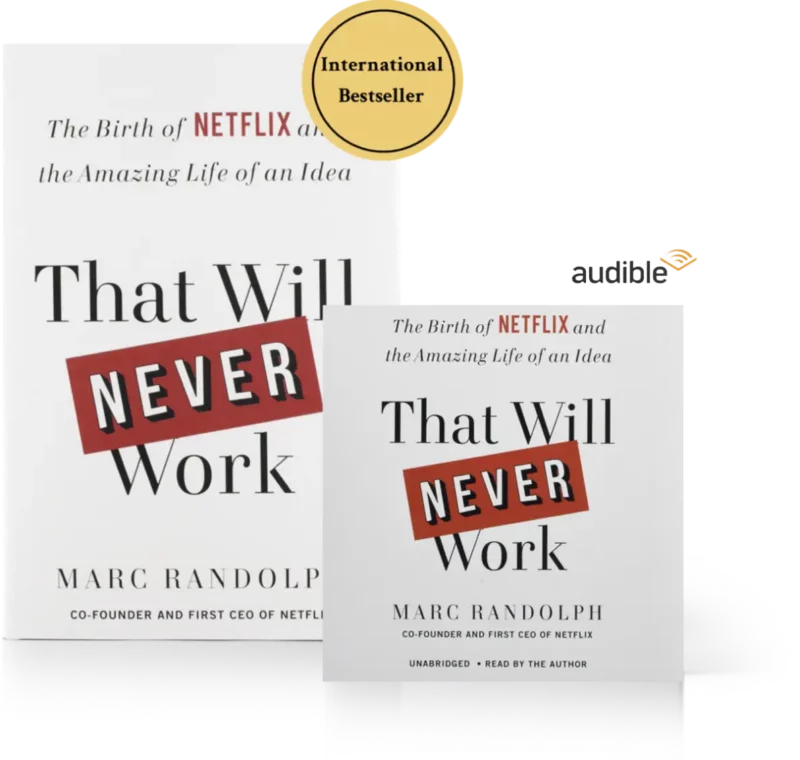Everything I Learned About Startups I Learned from Ernest Shackleton.
Lessons in leadership from a 20th century polar explorer.

It’s hard being a leader.
Especially in an early stage company, where leadership often requires that every few weeks you have to make a pivotal, game-changing decision based on incomplete, inconclusive, or ambiguous information.
In my book That Will Never Work, I write about the brutal decision we made early on at Netflix to stop selling DVDs, which at the time accounted for 95% of our revenue, and focus entirely on making our nascent rental business successful. It’s an in-depth, warts-and-all chapter, but I do leave one important detail out: the name of my mentor, a deeply experienced leader who provided indispensible advice and gave me the confidence to move forward with a non-intuitive decision.
Alright. I’ll tell you. It was Ernest Shackleton.
Shackleton was a British polar explorer who in 1914 set out to claim the last great prize of polar exploration: the first land crossing of the Antarctic continent, from sea to sea, via the South Pole. Shackleton’s plan called for him and a crew of 28 to sail in the Endurance, a three-masted barquentine which had been specially reinforced for Arctic waters and was widely considered to be the strongest wooden sailing vessel ever built.
Despite an encouraging start in the fall of 1914, thick ice soon slowed Shackleton’s progress to a crawl, and in January of 1915, less than 200 miles from his planned landfall and the start of his expedition, disaster struck. The Endurance got trapped in pack ice, and over the next six months, it was slowly crushed. Eventually, it sank.
Forced to abandon ship, Shackleton gave the name “Ocean Camp” to the flat and solid floe upon which he and his crew found themselves. As the Endurance slowly sank beneath the ice and disappeared from view, Shackleton and his team settled down to wait.
If you see photographs taken at that time, life on Ocean Camp doesn’t really look too bad. There was plenty of food and fuel, the crew had constructed shelters from materials salvaged from the Endurance, and days were apparently spent hunting, playing soccer on the ice, and exercising sled dogs.
But Shackleton knew that despite the relative comfort of their ice-floe existence, it was only a matter of time before the floe would begin to soften, its edges calving away, its large expanse breaking into smaller and smaller pieces, until he and his crew were dropped unceremoniously into the sea.
Shackleton’s choice was a hard one: Should he stay on his comfortable floe until the inevitable happened? Or should he walk away from it while his men were still strong, and use the Endurance’s three open lifeboats to attempt a desperate trip across 800 miles of stormy Antarctic seas, in a highly uncertain attempt to reach safety?
Seventy-five years later, just one year into the Netflix experiment, we faced a similar choice: Should we keep selling DVDs until Amazon got into the game, and that comfortable existence slowly but surely disappeared? Or abandon our comfortable perch and invest all our efforts in rental, a completely unproven market?
Most people probably don’t even remember that Netflix ever sold DVDs. But in the beginning, it was the only thing keeping us afloat. And renting DVDs online seemed about as promising as an 800 mile trek across Antarctic seas in open boats in winter.
As I wrestled with how the company should proceed, I thought back to Shackleton on the ice floe. The great explorer eventually decided that his best opportunity to save his crew was to take the chance, no matter how slim the odds. In April of 1916, he and his men finally left Ocean Camp behind, setting off on a journey that would become one of the most remarkable stories of survival and leadership ever.
Netflix, too, piled everything into open boats, abandoned the deceptively comfortable business of selling DVDs, and bet everything on rental.
Shackleton’s lesson to me was as a simple one — and something that I have taken to heart ever since.
It’s far better to take the long shot at uncertain but momentous success, than to take the sure shot at mediocrity.
Or to put it somewhat differently, it’s when you’re most comfortable that you’re most vulnerable.
Shackleton ended up coming ashore in hurricane-force winds, thirty-two miles from the whaling station where he’d find respite and rescue. He and his men traveled the last leg of the journey over mountainous Antarctic terrain, armed only with a carpenter’s adze and fifty feet of rope.
But they made it.
And although no one at Netflix had to pick up an oar, chop through ice, or hammer nails into the bottoms of their shoes to grip the terrain of the South Pole, I like to think that we did, too.
RECOMMENDED FOR YOU
My Three Criteria For Success in Early-Stage Companies
Podcast Episode 72
Is it a Culture Problem or a Hiring Problem?
October 25, 2022 • 38 min
